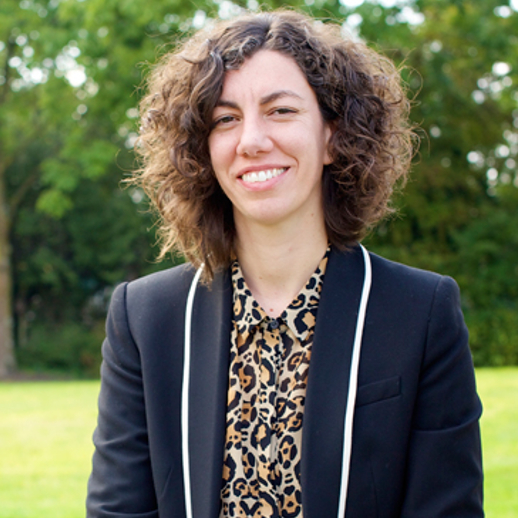About the 2023 program
Internet governance was originally associated with the management of unique identifiers (DNS, IP numbers, and protocols), and later with aspects related to the various dimensions of the digital divide, but these issues have not yet been resolved, especially in Latin America. There are still gaps in participation in international forums, in the production of standards and spaces for strengthening the productive and technological sector linked to networks and digital platforms, as well as in innovative proposals in institutional and organizational matters at the national and regional levels.
The fundamental questions that guided the 6th edition were:
DiGI 2023 addressed the institutional and regulatory aspects of Internet governance, Internet infrastructure and meaningful connectivity, tensions surrounding the governance of digital platforms, the geopolitical dimension and cyber diplomacy, and Artificial Intelligence and its economic and political disruptions.
The agenda included:
- Cyberdiplomacy and Geopolitics
- Governance of Digital Platforms
- Institutional Governance of the Internet
- Internet Infrastructure, Connectivity, and Digital Divides
- Artificial Intelligence and Internet Governance
The sessions included a combination of lectures, seminars, and group workshops. The course had a synchronous and asynchronous virtual component lasting 30 hours, which took place between October 9 and November 10, and concluded with an intensive 40-hour in-person component held from November 13 to 17 in Montevideo (Uruguay), at the UCU Graduate School and the Casa de Internet.
Who participated in this program?
The students of the 6th edition of DiGI, coming from 11 countries in Latin America and around the world, work in various fields in the public and private sectors, academia, and civil society organizations.
Why should I participate in the next edition of DiGI?
DiGI is a space for those seeking an accredited postgraduate training program, as well as a place to meet and strengthen personal networks. DiGI encourages interaction with peers from other countries, organizations, and sectors. At the same time, it promotes dialogue with national and international professors and experts from prestigious universities and organizations on Internet governance issues. The concentrated in-person format creates a strong community and maintains ties between graduates and exhibitors.
Graduate profile:
- Able to analyze the digital environment in a systematic way.
- Actively participates in discussions on public and private Internet governance policies.
- Develops actions that can influence public and private policy discussions and decisions.
Who organized the last edition?
The 2023 edition of DiGI was organized by the Graduate School of the Catholic University of Uruguay (UCU), with institutional support from the Center for Studies in Technology and Society (CETyS) at the University of San Andrés (UdeSA, Argentina).
This was the sixth edition of a program that began at CETYS. More than 120 students from a dozen Latin American countries have attended DiGI. Guest lecturers are international experts from universities, research centers, think tanks, and protocol standardization and management organizations.
The following organizations contributed to the scholarship fund and made this program possible:
- ISOC Foundation
- LACNIC
- Public Interest Registry (PIR)
*Coming soon, 2024 registration.
Objectives
- Provide an accredited, interdisciplinary training space of excellence that allows participants to relate and evaluate the different elements of technological architectures with the institutions, standards, values, and policies that underlie them.
- Develop analytical skills regarding the public policy, legal, and socioeconomic impacts of the expansion of the Internet and related technologies.
- Develop capabilities to participate more effectively in national, regional, and international processes related to Internet governance.
- Promote the creation of a community around the subject through intensive and immersive interaction between students and teachers.
Requirements
- University degree in any discipline, from any country.
- Availability to take the program in both online and face-to-face modalities.
- The diploma has a final work for its approval and obtaining the diploma title accredited by the Center for Technology and Society, Universidad de San Andrés.
- In cases where the final work is not done, a certificate of participation is obtained.
Guest lecturers and experts 6th edition

Carolina Aguerre
(Uruguay)
UCU / CETyS UdeSA

Carla Bonina
University of Surrey

Diego Canabarro
(Brasil)
UFRGS / CETyS UdeSA

Rodrigo De La Parra
VP for Latin America and the Caribbean at ICANN Managing Director LAC Regional Office

Agustina Del Campo
(Argentina)
ISOC

Matias Dodel
(Uruguay)
UCU

Jessica Fjeld
(EEUU)
Harvard

Hernán Galperin
(Argentina)
USC

Christian O’Flaherty
(Argentina)
ISOC

Juan Peirano
(Uruguay)
ISOC

Christian Perrone
ITS Rio

Oscar Robles Garay
(México)
LACNIC

Niels ten Oever
University of Amsterdam

Tatiana Tropina
(Países Bajos)
Universidad de Leiden

Patricia Vargas-León
(Peru)
Yale, Tufts

Luca Belli
Professor of Internet Governance at FGV Law School in Brazil, focusing on Internet access regulations, data protection, and digital policies.

Natalia Enciso
Founder of Internet Society (ISOC) Paraguay.

Paula Vargas
Director of Privacy Policy & Engagement at Facebook for Latin America.

Daniel Castaño
Professor at the Externado University of Colombia.

Danilo Doneda
Researcher at the Center for Technology and Society (CTS) of the Getulio Vargas Foundation (FGV).

Eduardo Bertoni
Representative of the Inter-American Institute of Human Rights (IIDH).

Hernán Galperin
Profesor en la Universidad del Sur de California

Solange Maqueo
Research Professor at CIDE. Areas of interest are the right to privacy and the protection of personal data, and public policies with redistributive effects.

Judith Mariscal
Director of Centro Latam Digital, Research Professor at CIDE Expert in ICT policies and regulations.

Daniel Oppermann
IT and Internet researcher affiliated to NUPRI at USP.
Organized by

